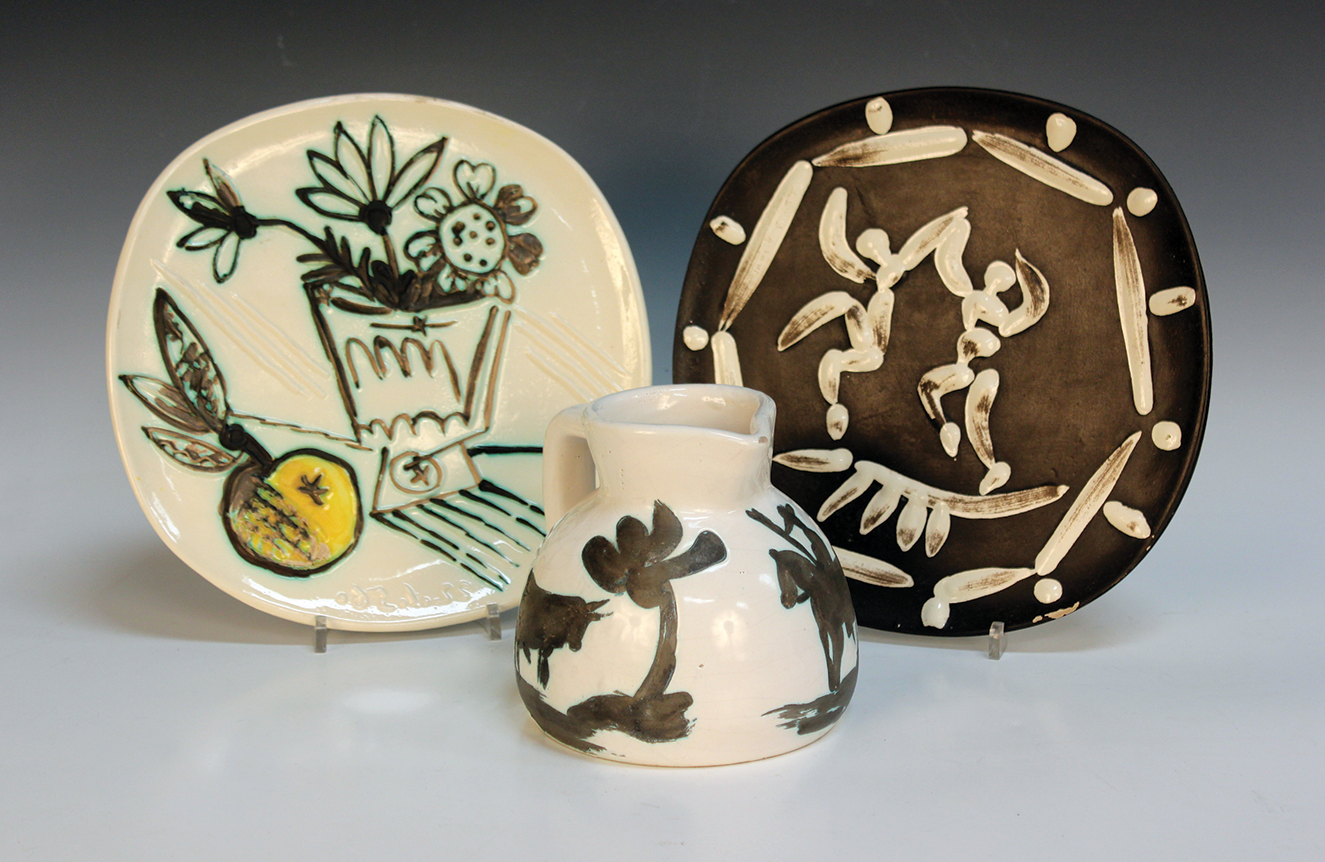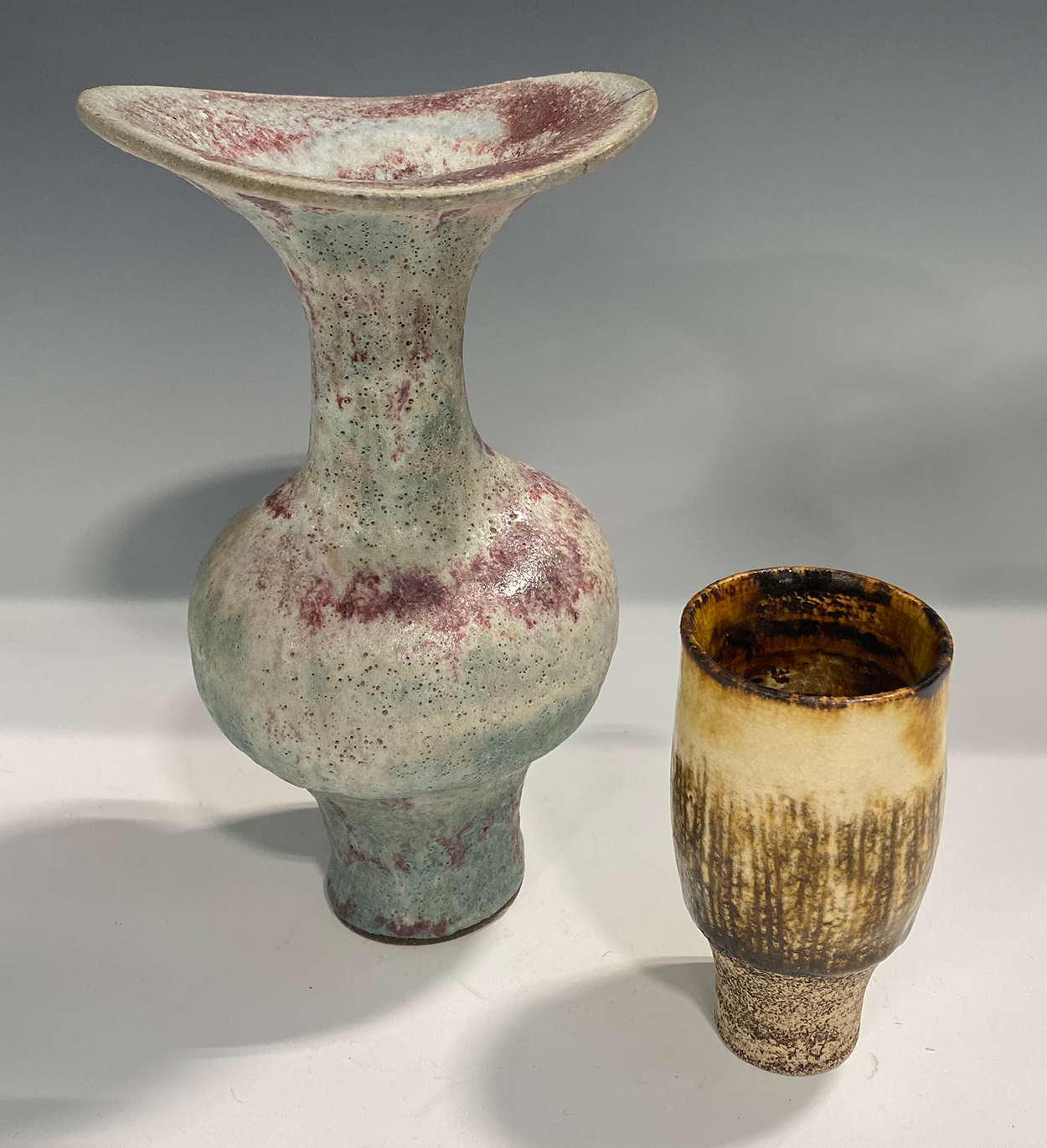
Alongside the tragedy of war the 20th century witnessed a flowering of the arts. Painters, sculptors, writers, musicians and composers in the Post-War period sought to give voice to all that it is to be human and to hope.
The Austrian born Jewish potter Dame Lucie Rie was arguably the most influential ceramicist of the Post–War period with an international reputation. In 1938 Lucie Rie left Nazi Austria and made London her home. Her ideas and work were rooted in the Modern Movement and she quickly arrived at the simple thrown cylindrical forms which would define her pots and bowls. Rie experimented with ‘volcanic’ glazes which she would use to beautiful effect on her post-war stoneware.
Rie worked closely with the remarkable Hans Coper in London. His father was Jewish and Coper had to flee Nazi Germany in 1939. His abstract, sculptural stoneware forms are also celebrated. His rare early vase with its yellow and manganese flowing glazes is beautifully conceived.

Amongst the towering giants of the 20th century was Pablo Picasso. After living under the Nazis in his Paris studio he journeyed south to Provence. Provence, as much an idea as a place, has gathered diverse peoples to her over millennia. Each have added to her richness and, in their turn, have been shaped by this remarkable land.
In the summer of 1946, Pablo Picasso decided to visit the annual potter’s exhibition in the provincial village of Vallauris. There he met Suzanne and Georges Ramié, the founders of the Madoura ceramic workshop, who were keen to persuade him to come to Vallauris.
Picasso returned in July 1947 bringing his extraordinary imagination and creative energy to the medium of ceramics. He was first attracted by the large, almost rectangular dishes in the workshop. Here Picasso took the everyday and transformed it in to high art, painting and incising with an extraordinary richness of expression. Favourite themes included figures, bullfights and still lifes as depicted on the pitcher and plates. In each you see the free, graphic rhythm and unorthodox method which typifies Picasso’s ceramics. These pieces are Picasso Madoura limited editions authenticated by a stamp to the base. Picasso lived at Vallauris before moving to Cannes.
These important pieces have been entered for sale in Toovey’s specialist studio pottery auction on Thursday 29th February from a Sussex private collection. Pre-sale estimates range between £1000 and £4000. They reflect the desire amongst artists to give voice to hope and renewal in the Post-War period.